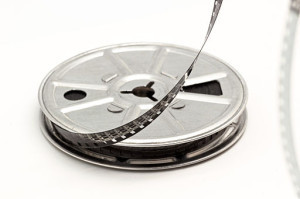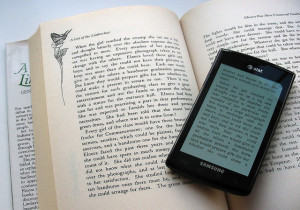Rachel Lynn Brody's Blog, page 8
July 14, 2014
Man Candy (Because Chocolate is just SO femme)
If you haven’t tried Pocky: it’s a really awesome chocolate-and-cracker treat from Japan.
However, it’s also apparently a very complicated candy, because I didn’t realize this – and I’m guessing you didn’t, either – but apparently, of all the flavors of Pocky that have ever been invented in the history of Pocky are…wait for it…POISON TO MEN.
But wait! Fear no more, dudes – now you can actually try this magical candy without fear of death. Because this Pocky? This is MEN’S Pocky.
(That sound you hear is me slamming my forehead against the wall. Really, Pocky-manufacturers? MEN’S CHOCOLATE? Because dark chocolate is just WAY TOO GIRLY for men to buy on their own?)
So what happens if a group of people, mixed in their genders, sit down to play girls’ monopoly while eating boys’ Pocky? Do worlds collide? Does the multiverse implode?
Also, sidenote: What does it say about Pocky’s feelings towards men that the flavor designated appropriate for them is the bitter chocolate?
My Grandfather’s Brain Museum featured on The Huffington Post!
 For those who don’t know, my grandfather was a neuroanatomist. (I would say a famous one, but he was very humble and I don’t think he’d approve. Even if it’s true.)
For those who don’t know, my grandfather was a neuroanatomist. (I would say a famous one, but he was very humble and I don’t think he’d approve. Even if it’s true.)
Today, a good friend of the family passed this article on to my parents; it’s a list of affordable family vacations and summer trips across America. If you go to their interactive map, pick the “Atlantic region,” then “New York,” then “The Sophisticates,” guess what – the one thing they pick, out of every cool free museum and interesting thing to do in the state, is MY GRANDFATHER’S BRAIN MUSEUM* in Buffalo, NY.
Which I think is pretty freaking cool. Especially since, as the article states, “Brody built this exhibit to be used by everyone, from kindergartners to neurosurgery students.”
You all should go.
*I should say that the museum’s formal name is “The Museum of Neuroanatomy,” because if you google “my grandfather’s brain museum” you’re not going to find much. Unless your grandfather also has a brain museum. In which case, let me know.
July 8, 2014
Review: FunkyFlick.com, A New Way To Find Movie Recommendations

Coyau / Wikimedia Commons / CC-BY-SA-3.0, via Wikimedia Commons
This is a sponsored post written by me on behalf of Funkyflick Company. All opinions are 100% mine.
In between blogging about Netflix, Hulu Plus and Aereo, one thing I don’t talk much about is how I actually find new movies to watch.
I keep lists from what people recommend to me, but just as often I’ll browse categories (like my documentary spree on Hulu the other day) and add things to my queue just because they look interesting. I’ve watched movies for work and research purposes (my binge of Shark Week programming earlier this year), for entertainment (I, like many of you, still catch myself humming Let It Go from Disney’s Frozen).
The flaw in this plan is, of course, that as a viewer, you’re often limited to whatever films, TV shows or books are available on the platform you’re searching – for example, if I open up my library app, I can search for books available through 3M but not what the NYC Library has available for Kindle. (I can get a fuller catalog search by going back to the actual NYPL site, but who wants to navigate that on their phone?)
The other day, at loose ends for something to watch, I checked out FunkyFlick.com, which claims to be able to find recommendations for movies, books and more based on what you already like. Okay, I thought, I’ll give this a go.
One of my favorite movies is (wait for it) Dogville by Lars von Trier, and while I completely acknowledge that von Trier has some major issues when it comes to dealing with women, his films really are a singular experience, often evoking particular emotional states and visceral moods. It’s hard to find other filmmakers whose work has the same effect on me as a viewer; I decided that looking up von Trier’s Dogville was a good way of testing just how robust it is.
The first handful of films that FunkyFlick.com recommended were actually other early works from von Trier, along with some more recent films and other pieces from the Dogme group. Then it got interesting. A couple of Westerns – High Plains Drifter, High Noon, Bad Day at Black Rock – popped up, along with the vampire horror flick 30 Days of Night. Dear Wendy, a 2004 co-production between a bunch of European countries with von Trier as the writer (but it’s a comedy?) and a really neat-looking piece called Element of Crime about a British detective in Cairo all caught my eye. One horror film, Population 436, (about a census taker sent to a small town) looks like it might be a little scarier than I could handle, but I might give it a shot if it comes up.
I like that each of the films features a short trailer and a summary of the film, and while it might take some searching to find some of the more esoteric titles, at least now I have a way of finding actual recommendations – not just the cheesy “based on what you’ve watched, you might like” ideas that I’m usually handed by online recommendation systems.
All in all, FunkyFlick.com is an interesting site, and I would recommend anybody take a wee noodle around on it when they have a few extra minutes. You’ll definitely increase your to-watch list by (at least) a few titles.
July 5, 2014
Dog
A couple weeks ago, my parents adopted this cutie from the SPCA.
Half dalmation, half (apparently) spaniel, this six-year-old doggie was a sweetheart from the word go. He hardly barks, communicates well, is incredibly well-trained, and has already bonded with most of the family. Plus, when visitors come to the house, he’s friendly and not frantic – and he doesn’t try to goose them.
 In a doctor’s appointment the other day, the subject of “my” dog came up, and my doctor mentioned how much dogs can help people feel better. When asked if I’d ever get a dog, my reply was an enthusiastic YES – just not right now, living in NYC. I feel like it wouldn’t be fair to have him in my tiny apartment, and that’s not even looking at practical issues like the cost of air conditioning, vet bills and dog supplies. But, as my doctor pointed out, plenty of people in NYC do have dogs, and maybe I’m doing myself a disservice by not just taking the plunge, by coming up with excuses not to get one. Dogs, my doctor noted, get you to go out to parks and take walks, they open up conversations with new people and offer a way to meet folks, and they provide fantastic companionship. There was a reason, she said, that therapy dogs go to work with seniors and people in hospitals.
In a doctor’s appointment the other day, the subject of “my” dog came up, and my doctor mentioned how much dogs can help people feel better. When asked if I’d ever get a dog, my reply was an enthusiastic YES – just not right now, living in NYC. I feel like it wouldn’t be fair to have him in my tiny apartment, and that’s not even looking at practical issues like the cost of air conditioning, vet bills and dog supplies. But, as my doctor pointed out, plenty of people in NYC do have dogs, and maybe I’m doing myself a disservice by not just taking the plunge, by coming up with excuses not to get one. Dogs, my doctor noted, get you to go out to parks and take walks, they open up conversations with new people and offer a way to meet folks, and they provide fantastic companionship. There was a reason, she said, that therapy dogs go to work with seniors and people in hospitals.
 I’m more torn than I’d like to admit. As responsible as I consider myself to be, the idea of being responsible for another living creature is more than a little bit scary. And weighing out the practical pros and cons, I always end up talking myself back around to the position that right now, a dog just isn’t in my cards. How do other singletons manage having pets that need constant care, especially in as unpredictable a city as New York? How do pet owners in the city get back and forth to their jobs while still looking after their pets? And what does a 24/7 a/c bill actually look like? (Because just based on air conditioning for myself, it seems like it might get scary.)
I’m more torn than I’d like to admit. As responsible as I consider myself to be, the idea of being responsible for another living creature is more than a little bit scary. And weighing out the practical pros and cons, I always end up talking myself back around to the position that right now, a dog just isn’t in my cards. How do other singletons manage having pets that need constant care, especially in as unpredictable a city as New York? How do pet owners in the city get back and forth to their jobs while still looking after their pets? And what does a 24/7 a/c bill actually look like? (Because just based on air conditioning for myself, it seems like it might get scary.)
All those concerns aside, at least for now, I have a part-time dog I can snuggle with when I visit my parents.
July 1, 2014
Congratulations to the Short Frictions Giveaway Winner!
 For the last month or so, I’ve been running a giveaway for a gift code from ThinkGeek.com…and now it’s time to announce the winner!
For the last month or so, I’ve been running a giveaway for a gift code from ThinkGeek.com…and now it’s time to announce the winner!
Congratulations to Patricia Salyers!
It was cool to watch how every day, Patricia was on Twitter, tweeting the promotional tweet to get additional entries for the competition – and clearly the work paid off! I’ve contacted her privately to arrange for her to get her ThinkGeek code, and send a heartfelt thank-you to everyone who took the time to enter.
If you didn’t win, but still want something free (and who doesn’t want free stuff) then remember, I’m also looking for advance reviewers for Short Frictions, and am rewarding those who step up with both a free e-copy of the book in the format of their choice and a thank-you on the book’s acknowledgements page.
Having lots of reviews is one of those things that helps us indie writers sell books, so not only will you get free stuff if you sign up – you’ll also be doing me a solid.
June 26, 2014
Advance Copies, coming up!
Woooo! Just got the manuscript for Short Frictions back from my editor, with some great notes. Now that I’m working through those, it’s also time to prep for a new stage in my new self-publishing checklist: advance reviewers.

Image from phys.org (http://phys.org/news/2014-01-google-m...).
About a month ago, I took a webinar from Writer.ly that suggested ways of getting the word out about your self-published book. One of the ideas I loved was setting up a list of readers who would comment on the book before its publication, then leave reviews on release day!
Adding a new step to a self-publishing strategy is tricky, but one of the points @Kelsye (who gave the webinar) made that really stuck with me was that reaching as many advance reviewers as possible is important because of how it helps generate word of mouth, and gives people an incentive to read and review your work. While I’ve heard of some writers (specifically, Guy Kawasaki) crowdsourcing feedback, I’ve never tried this strategy myself – it’s a little nervewracking, but I think it will be worth it!
If you still want to sign up to be an advance reader and reviewer, there’s still time to get me your info! You’ll receive a thank-you in the final edition of the book, as well as a free e-copy. Interested? Click here for more information.
June 13, 2014
“Encouragement” With a Side of Tone Policing

By DB Photographs on Flickr; used under Creative Commons. (https://www.flickr.com/photos/demibro...)
Women’s bodies, their size, and how well they fit within current fashion expectations have long been a part of a debate around the place women occupy in our culture. There are articles that link sizeism to the idea that women are taught, from a young age, to take up as little space as possible – both emotionally/psychically and physically – and that those women whose bodies take up more size than the minimum can therefore be categorized as less than. An excellent example of this is the yearly debate on “bikini bodies,” and as my favorite saying goes, “Want to have a bikini body? Take your body. Put a bikini on it. VOILA.”
Recently, a writer on The Huffington Post posted a piece titled, “I Wear A Bikini Because F*CK YOU.” In it, she writes things like:
1. I don’t give a sh*t.
I actually do not exist for your viewing pleasure, and your ideas about who should and should not be seen in a bikini are zero percent my concern.
She goes on to talk about teaching her daughters body-positivity, how her ex-husband was a douchebag who thought certain items of clothing shouldn’t even be made in sizes above what he deemed acceptable, and more. For those of us who’ve been told not to wear sleeveless shirts because of our fat upper arms, or that a piece isn’t “flattering” (i.e. it shows off the curves you love, regardless of how others feel about seeing some cleavage), the article is witty, funny and on-point. One comment, which I ran into on Twitter, surprised me:
.@[redacted]I like the article but think the anger isn’t necessary and keeps some people from hearing her message.
— LITERARY TYPE. (@[USERNAMEREDACTED]) June 10, 2014
As one friend pointed out when I mentioned this to him, this reminded him of the network guys from Sports Night. “We love what you’re doing with the show, but the audience…”
If the writer in question wants to write with anger, that’s her prerogative, and it strikes me as concern-trolling for someone to say that while they personally enjoyed the piece, her “anger” (as they perceived it) a) is unnecessary and b) might make people less receptive to her message. From scanning the comments (my eyes, my eyes!) I can say, with assurance, that there are people who either get it or don’t, and there doesn’t seem to be much in the way of folks falling in the middle. Nor do m/any of the comments seem concerned with the emotions her piece conveys.
Why does the commenter – a well-known individual whose words no doubt carry some weight – feel it necessary to give this kind of backhanded compliment to this woman via Twitter at large. If the Literary Type likes the article and recognizes that the writer has valid points, why not let readers decide for themselves whether they “hear” the writer’s message? If the comment is meant to be constructive criticism (a fully valid defense, particularly given Literary Type’s career and influence), why not aim it at the article’s writer – whose Twitter handle is at the bottom of the article – instead of the reader who tweeted the link (and, by the inclusion of the “.” prior to his response, his entire list of followers)?
Because: Tone Policing.
That wonderful silencing technique whereby someone lets you know that your “tone” is upsetting or otherwise unsavory, and maybe you ought to moderate how you express your distaste for the status quo in the hopes of making a more palatable argument. Except – and here’s the thing – asking someone to write or discuss an issue in a more “acceptable tone” is a bog-standard silencing technique when it comes to discussing issues faced by women and minorities. From Jezebel.com:
Tone policing is the ultimate derailing tactic. When you tone police, you automatically shift the focus of the conversation away from what you or someone else did that was wrong, and onto the other person and their reaction…
…I am responsible for making my life better for me and for the people who are similarly oppressed. I give no shits how recognizing your complicity in an oppressive system makes you feel, and I don’t have to. No one gives a shit about how it makes me feel when I am told that things would get better if I just “asked nicely”. You don’t think I’ve tried that? The reason I’m angry is that I tried playing by your rules of niceness, and you ignored me.
Given the Literary Type’s stature in the industry, I find it hard to believe actual constructive criticism wouldn’t be welcomed – but this isn’t constructive criticism, it’s a derailment of what a body-positive woman is saying about her lived experience of society’s policing of women’s bodies. Her body. And other than the use of profanity scattered through the article, it actually doesn’t even read to me as particularly angry. Comics lace their work with profanity all the time, and while some comedy does in fact come from a place of anger, they’re rarely told, “Hey! Be less angry, or people won’t listen to you!”
Next time, I hope the Literary Type takes his considerable expertise in the world of writing and publishing and brings it directly to the article writer, offering legitimate criticism rather than trying to de-legitimize her point – that women should be able to wear whatever they like in the pool or on the beach, regardless of their body type - via a watered-down, backhanded compliment.
June 12, 2014
Any Ray of Sunlight (When it Comes to Medical Bills)
By Bike756 (Own work) [Public domain], via Wikimedia Commons
One of the major sources of stress I’ve faced throughout my battle with back injury this year has been ciphering out my medical bills.About 15 years ago, I had a bad ankle sprain in the UK. My friends loaded me into a cab, we made our way to the local hospital, and I was treated and received pain medication, crutches and a bandage, all for free, even though I was just there on a tourist visa at the time. It’s an experience I’ve thought of numerous times while going through my current situation, and along with my time as a paying member of the NHS system in the UK during graduate school, has served as a yardstick (meter-stick?) against which I’ve measured my experience in the US.
At this point – four and a half months after my initial injury, I’ve lost track of how many bills I’ve received, how many checks I’ve written, how many times I’ve breathed a sigh of relief to get one bill covered only to gasp in shock at the price on the next bill to come in. I’ve calculated deductibles and max out-of-pockets, filed copies of bills with notes of dates and amounts paid, added charges up to determine whether I’ll be eligible for tax deductions and more. Since medical bills aren’t my only expenses, and they can be a bit unpredictable, they’ve been a consistent source of stress, and one that I’m happy to accept any respite from at all.
Today I got some of that respite.
I got a doozy of a bill yesterday. Well, to be clear, I got the first half of the bill almost a month ago, misplaced it, and got an updated copy including additional charges in the mailbox yesterday. I took one look at it, decided I couldn’t deal with the stress, and put it aside to deal with today.
I just got off the phone with the billing office. I think I may have made the billing office staff’s day — the lady I spoke to certainly made mine. When I gave her my details and asked her about setting up a payment plan (gritting my teeth with dread as I imagined the reaction when I let them know how much I would be able to afford every month), she said the following, and I nearly choked:
“The balance on your account is zero.”
I looked at the “amount due” in the upper corner of the bill in my hands. “I…are you sure?” I asked.
“That’s what it says here.”
I couldn’t believe it. “Can you…look, can I just check the account number to make sure?” I asked. “Because I’m looking at this bill and that’s really not what it says.” I read the account number off to her.
She confirmed my name. “Yep. Right now you have a balance of zero.” She briefly explained that because of something to do with my deductible and my out-of-pocket maximum, they were appealing the payment amount and would collect from the insurance company. Not from my bank account.
I thanked her, told her it was probably the best news I’d had in a month, and thanked her again. Hanging up, it was like a weight had been lifted from my shoulders. Well, part of a weight, anyways – that was far from my only medical bill, but it was certainly one of the more onerous ones.
At this point, I’ll take any ray of sunlight I can get.
June 11, 2014
Blogging the Moment: Riding the Wave On a Hot-Button Issue

Photo used under Creative Commons from nathangibbs (https://www.flickr.com/photos/nathang...).
How quickly do you put your thoughts together when there’s a hot-button issue? Do you take a few days to think about what you want to say, then carefully structure and write 500 words on the topic? Or do you dive in and let furious waves of eloquence bombard your blog and its readers, concerning yourself more with timeliness and instinct rather than restraint and premeditated point-making?
Recently, a friend chose diving in with fury regarding “YA as Guilty Pleasure” controversy, first holding forth on her Twitter account then translating her tweets into a blog post. A popular internet blog had posted an article slagging off adult readers of Young Adult and Middle Grade fiction (here’s looking at you, Hunger Games readers over the age of 18). The piece hit a nerve with a wide swath of the internet, because – as I’m sure you’re aware, if you haven’t been living under a rock since the 80s or even earlier – adults like well-written stories, no matter who the publisher things they ought to be marketed to. The result of my friend’s righteous anger was an impassioned, shoot-from-the-hip piece that not only spoke to the issue being debated, but also swept its readers up with its pure and forceful emotive oomph. From her blog:
I don’t care whether you’re fifteen or fifty; if something brings you joy and causes no harm to others (which, memo to the intelligentsia: that does not count readers’ love of MG/YA hurting your feelings), you should do that as often as you possibly can. Adulthood is serious business, and to get through it all and take on the responsibility of making the world what we want and need it to be, we need to feed our whole selves — we need those reserves of hope and joy, we need that catharsis, we need those reminders of possibility and who we were and who we could be.
Just a few days after posting her piece, my friend’s blog was picked up by Freshly Pressed (a WordPress.com feature that collects pieces the site’s editors consider worthy of being shared with a wider audience), and a piece that had already garnered significant attention was suddenly exposed to far larger audiences. Would this have happened if she’d waited a few weeks before posting her piece? Maybe, but my guess is the chances of it would have been significantly lower, simply because of the internet’s rapid news cycle and lack of ongoing attention span.
This bears out my own experience. When, on its second day, I posted my reactions to the #YesAllWomen hashtag, my blog experienced a surge of both organic search results and referrals. When I posted about David Tennant just after the Gracepoint trailer was revealed? Same thing. It’s the same reason TV bloggers often post their recaps within hours – or even minutes – of the end credits of a show. The internet has the attention span of a mayfly. Even this piece, from a legal site looking at criminal procedure via a certain recent event concerning Joffrey on Game of Thrones, already seems dated – just two weeks after the events the blog discusses.
Emily Suess, one of my blogger touchpoints for years now, recently wrote a piece titled Your Content Will Be Devoured, discussing how hungry internet readers are for content – and yet, she highlighted that even the most schedule-happy blogger must leave room to adjust around the news of the day.
As illustrated by both my and my friends’ experience, this is absolutely something bloggers should be aware of. Being able to quickly organize your thoughts and distribute a coherent take on an unfolding event is a skill every blogger should develop and use – otherwise, you risk missing hits and losing credibility when it comes to your selected field of interest.
Whatever your blog is about, try picking a news piece that relates to it and is currently being debated. Get fired up, write a blog piece, and post it before you give yourself enough time to calm down. See what you come up with – and feel free to post the link in the comments!
June 10, 2014
Thoughts on Succeeding as a Modern-Day Author

Image by “Lynn Gardner on Flickr”:http://www.flickr.com/photos/grandgrr... and used with Creative Commons License.
A couple things happened in the world of eBook sales the last few weeks, and I thought it might be useful to write down some thoughts on the matter.
Massive Report On Amazon Sales Released
First, Hugh Howey, bestselling author of the Silo Saga, released a report on Amazon’s sales figures. If you’re trying to sell eBooks, particularly as an independent author, I highly recommend you read the report. The report goes into detail, examining how different types of authors do when selling their books on Amazon, including numbers of books sold, amounts of money made, and changes in which authors are walking away with the biggest slices of the publishing pie. In the end, the report (and other articles I’ve read that riff on it) make it sound as if, for new authors, self-publishing is the best way forward. Going with the big five only seems to benefit writers who are already established, particularly since (more and more frequently) marketing duties fall to the writer in both cases.
Apple Adds iBook App to iOS8, reducing purchasing friction
Secondly, I’ve just read an article on how iOS8′s inclusion of an iBook app does away with an important point of friction for buyers on the iBook platform. Knowing this, and having glanced a few times at my Smashwords sales reports, I took a moment to head over to my Buy My Books! page and enter in additional links direct to each platform that had reported sales. This included Kobo and iBooks,
Value Added By Traditional Small Publishers Continues To Lessen
The third point I want to mention is that a friend who works primarily in self-publishing, but also had a publishing deal with a small press for a horror novella, recently had an interaction with her publisher regarding their agreement and the number of copies that had sold during the two-year term of her contract with them. The email she received in return was disappointing: vague regarding actions they’d taken (which they were contractually obligated to undertake), nonspecific about the number of sales her book had seen over the past two years, and essentially tepid about continuing to sell and market her book. When she asked my advice about whether to keep or dump her publisher, my take was that they didn’t seem to be adding value.
Because value is what it’s all about, as an indie publisher, isn’t it? We spend our time and often our money finding ways to add value to our work: covers that pop, ads that reach our intended customers, giveaways that grow both awareness and mailing lists. While publishing houses might offer individuals with specific publishing expertise, if that only results in a few press releases being sent around a state – and no interviews or reviews – is any value really being added? If Smashwords can upload your eBook to numerous growing retailers (particularly those, like Apple, who are moving towards eliminating friction in the purchasing process), or Amazon actually pays you significantly more than a writer with a Big Five contract…what real value do you get from pursuing a traditional path to publication? One friend, who works closely with an Agent, even reported that if he couldn’t get his clients a good deal within six months, he recommended they self-publish then re-shopped their work once they had sales figures to back it up – and then got them much better offers. While we’re not all fans of marketing, and staying on top of the latest trends takes time many of us would rather spend in polishing our drafts, the reality is that self-publishing lets us make more money and saves the Big Five the problem of dedicating resources to authors who won’t sell.
In short, it’s looking more and more like writers who want to succeed have to be prepared to do so in a self-publishing space.



![By Bike756 (Own work) [Public domain], via Wikimedia Commons](https://i.gr-assets.com/images/S/compressed.photo.goodreads.com/hostedimages/1402712206i/9976345.jpg)


